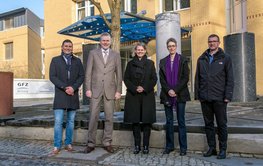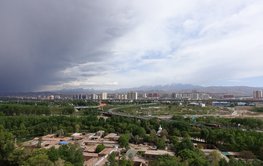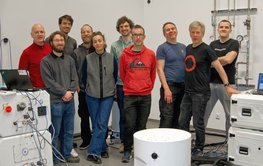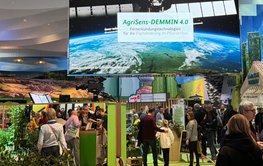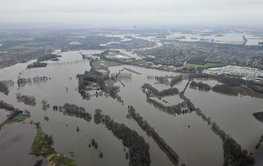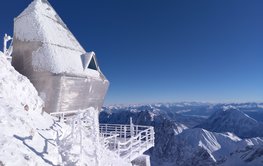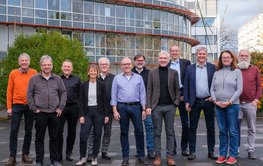She learned about topics such as geothermal energy, the geological storage of hydrogen, the GFZ satellite missions, earthquake risk, the use of data cables for seismics and the GFZ spin-off DiGOS.
This is shown by studies on fossil pollen, spores and geochemical data from fossilised soils. They also provide insights into future developments under extreme climatic conditions.
Ambassador Dr Imomudin Sattorov and his delegation learned about German-Tajik research projects and the GFZ's commitment in Central Asia and discussed the expansion of cooperation.
Under the motto “Broadening Horizons”, the international scientists will spend three months at the GFZ – funded by the Helmholtz Information and Data Science Acade-my (HIDA).
Organised by the GFZ Section 4.4 “Hydrology”, the community met to discuss the quality and potential fields of application of the new type of device, which can now also be used outdoors.
GFZ scientists presented their work on remote sensing technologies for digitalisation in crop production.
The Supervisory Board of the Karlsruhe Institute of Technology (KIT) elected Jan S. Hesthaven as President and Stefan Schwartze as Vice President of KIT. Next step is confirmation by the KIT Senate.
GFZ hydrologists Bruno Merz and Sergiy Vorogushyn provide information on the causes and challenges of flood protection and risk management.
On the basis of a superconducting gravimeter, the international research project aims to investigate the Alpine water balance with the Zugspitze as an example.
PD Dr. Wolfgang zu Castell was elected to the Administrative Committee of the German National Research and Education Network (DFN).


